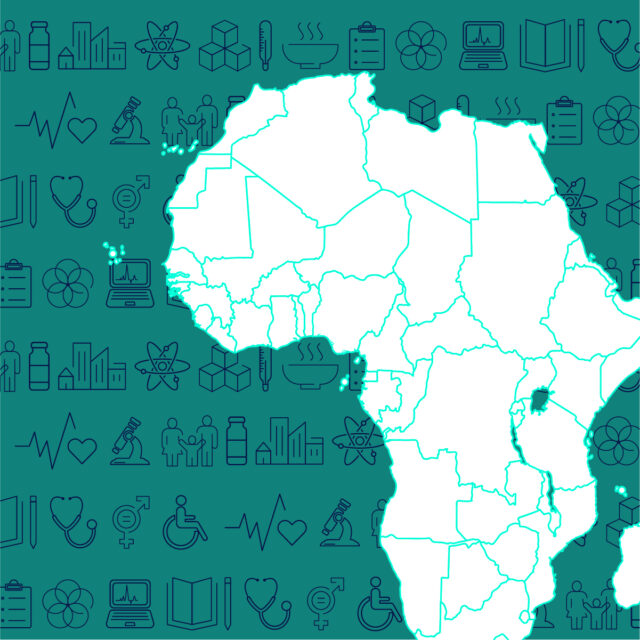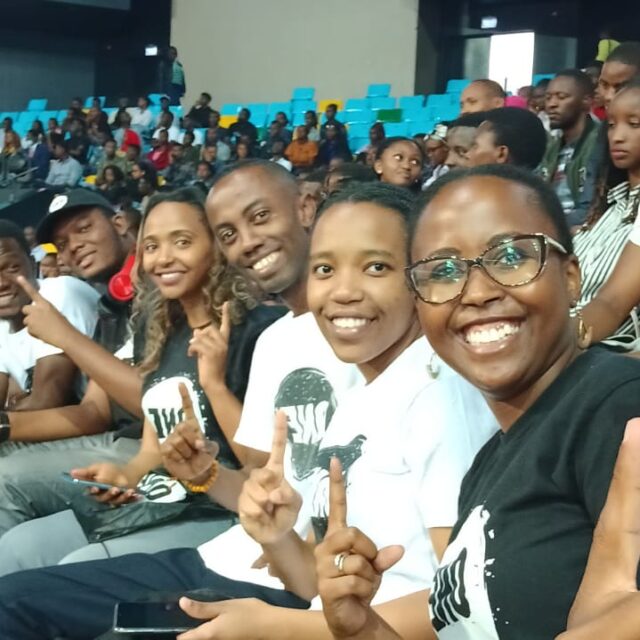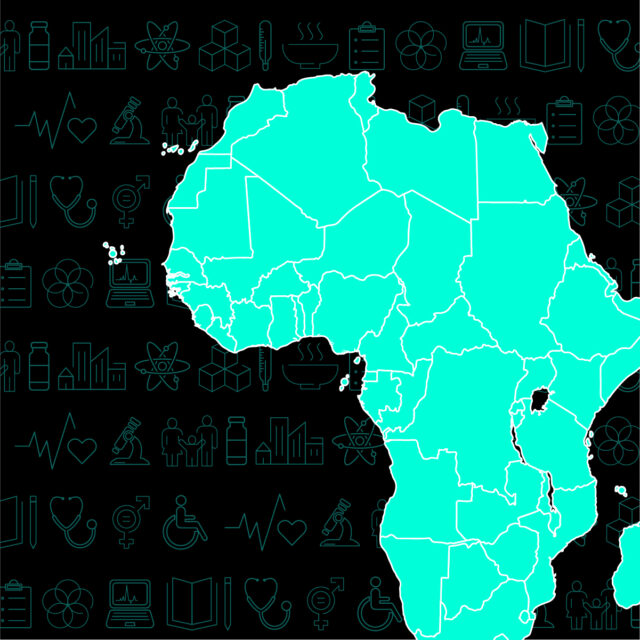Top news
Destructive pathway: COVID-19 infections in Africa are increasing at their fastest rate ever, with over 1 million confirmed cases recorded in the past month alone. The situation in at least 18 African countries is dire, as chronic shortages of vaccines leave millions exposed to the spread of the highly transmissible Delta variant. With only 1.4% of the continent’s population fully vaccinated, daily confirmed COVID-19 deaths have more than doubled in the past month and are currently sitting just shy of the peak in January, according to ONE’s COVID-19 Africa Tracker. WHO Director for Africa, Dr. Matshidiso Moeti, warned that the third wave is set to continue its “destructive pathway” through the continent, urging wealthier countries to donate vaccine doses.
Breaking point: A steep rise in hospitalisations in at least 10 countries is pushing fragile health systems to breaking point. “Under-resourced health systems in countries are facing dire shortages of the health workers, supplies, equipment, and infrastructure needed to provide care to severely ill COVID-19 patients,” Dr. Moeti explained. In South Africa, hospitals in the capital Johannesburg have been left “crippled” amid severe shortages of medical oxygen and ICU beds. In Namibia, which currently has the world’s highest daily death rate, doctors have been forced to make decisions “for the greater good,” taking sick patients off oxygen to save supply for patients more likely to survive.
Warning signs: The third wave in South Africa has “pummelled” the country’s fragile economy as it rips through the largely unvaccinated population. The Wall Street Journal reported this week that the pandemic has created “a spiral of death, lockdowns and anger” in South Africa that has fueled the recent rioting and unrest, in a warning of the pandemic’s potential aftershocks in developing countries. At least 214 people have died during the violence, which was triggered by the arrest of former President Jacob Zuma. Many vaccination centres and healthcare clinics, already overwhelmed by the volume of COVID-19 cases, have been forced to close. One HIV treatment manufacturing facility was attacked, and the supply of HIV medicines has been interrupted.
All out: South Sudan has become the latest country to run out of COVID-19 vaccines entirely. Health authorities in the country reported that the supply of the AstraZeneca vaccine received from COVAX in March has been exhausted, and over 90 COVID-19 vaccination centres have been closed. South Sudan successfully administered 96% of the vaccines it received from COVAX, but still only around 0.5% of the country’s population has received at least one dose.
Lions & tigers & bears: Meanwhile, the US has started vaccinating zoo animals. No, really – they’re actually vaccinating zoo animals. Less than 10% of healthcare workers in the world’s poorest countries are vaccinated. What can you say…
Brain drain: The loss of frontline health workers dying of COVID-19 is being exacerbated in developing countries by trained medical staff leaving to work in richer countries. Emigration rates of doctors and nurses from African countries are as high as 50%, and this loss of medical knowledge has contributed to excess deaths, especially during the pandemic. The phenomenon has been attributed to poor pay and conditions in developing countries, as well as rich countries implementing schemes to entice staff from these countries, such as the UK’s Health and Care Visa scheme.
Silent outbreak: Lassa fever has reemerged as a public health concern in several West African countries amid the pandemic, leading to 5,000 deaths in Africa annually. Experts have warned that hesitancy in visiting medical clinics due to COVID-19 has led to a “silent outbreak” of the illness in the region. In Nigeria, this has resulted in a “double crisis” of COVID-19 and Lassa fever, which is exacerbated by the country’s weak healthcare system.
Shot in the arm?: South Africa will start partly producing COVID-19 vaccines in 2022, in a move that could eventually increase supply in the region. South African vaccine manufacturer, Biovac, reached a deal with Pfizer and BioNTech to handle the final manufacturing stages for 100 million doses of their vaccine, which will be supplied exclusively to African countries. Crucially, however, Biovac will handle only “fill finish,” essentially the packaging of the vaccine, and distribution.. The vaccine itself will be primarily manufactured in Europe before being shipped to Cape Town. So not exactly a giant leap for vaccine equity, but maybe a small step.
Call for aid: The leaders of 23 African countries called for at least $100 billion to support their economic recovery from the pandemic. Following their one-day meeting in Abidjan, Ivory Coast, the leaders issued a joint declaration calling for the largest ever replenishment of the International Development Association. They stressed the pandemic’s dramatic economic consequences, with employment falling by 8.5% across the continent in 2020, and 32 million more people falling into extreme poverty. The IMF warned this week that the relative lack of vaccine access in developing countries and the rapid spread of the Delta variant is likely to hinder those countries’ recovery.
Travel ban: The African Union criticised the EU’s decision not to recognise the Covishield vaccine under its new scheme to allow fully vaccinated people to travel more freely. The decision effectively excludes Africans from the scheme, as Covishield accounts for the vast majority of vaccinations on the continent. The AU said the rules “put at risk the equitable treatment” of people vaccinated in Africa. We at ONE couldn’t agree more; we have argued that the new regulation could exacerbate the global COVID vaccine divide.
What to look out for
- GPE Education Summit: The Global Education Summit will take place on 28-29 July. The summit, hosted by UK Prime Minister Boris Johnson, aims to raise $5 billion over the next five years for the Global Partnership for Education. It will be a key moment in the fight to ensure that all children receive a quality education. Next week, we’ll be tracking the funding pledges as they come in, and we’ll have a special edition of the Aftershocks newsletter on the impact of the pandemic on education.
- UN Food Systems Summit: Last week, we reported that one in five people in Africa is undernourished, as the COVID-19 pandemic has led to a dramatic spike in world hunger. Next week, the UN will convene the Food Systems Summit, aimed at accelerating progress towards healthier, more sustainable, and equitable global food systems. Five separate “action tracks” are expected to propose concrete actions to this end. However, activists have already criticised the summit, saying its mandate doesn’t include any built-in accountability mechanisms to carry out solutions.
The numbers
- 30%: The drop in daily vaccinations administered in South Africa between 11 and 19 July, as severe unrest disrupts the vaccine rollout. (ONE COVID-19 Africa Tracker)
- 4.6: Total vaccinations administered per 100 people in Africa, compared with 80.5 in Europe and 79.5 in North America. (ONE COVID-19 Africa Tracker)
- 2.6%: Africa’s fatality rate among confirmed cases of COVID-19, compared with the global average of 2.2%. (WHO)
More reads
- Our collective failure to end the pandemic now will compound even deeper and more costly problems in the future. So argues ONE’s David McNair in his latest piece for the European Council on Foreign Relations.
- ONE’s Africa Tracker was featured this week in the NYTimes and Washington Post. The Times’ Abdi Latif Dahir penned an excellent piece laying out the impacts of COVID and the scale of vaccine injustice.
- The UK government has failed to show the leadership the world needs on vaccine equity, and has broken its promises made before the G7 summit in June. Mohamed Adow and Tasneem Essop tell it like it is in The Guardian.
- The spread of COVID-19 is testing the Biden administration in ways that go beyond global health, argues Micheal Gerson in a Washington Post op-ed.
- Regional integration is critical for expanding the size of African markets. CNBC Africa digs into the prospects and challenges of advancing the AfCFTA.
- The emergence of dangerous new variants threatens everyone, but rich countries are becoming complacent. Carl Bildt discusses “the variant threat” for Project Syndicate.



